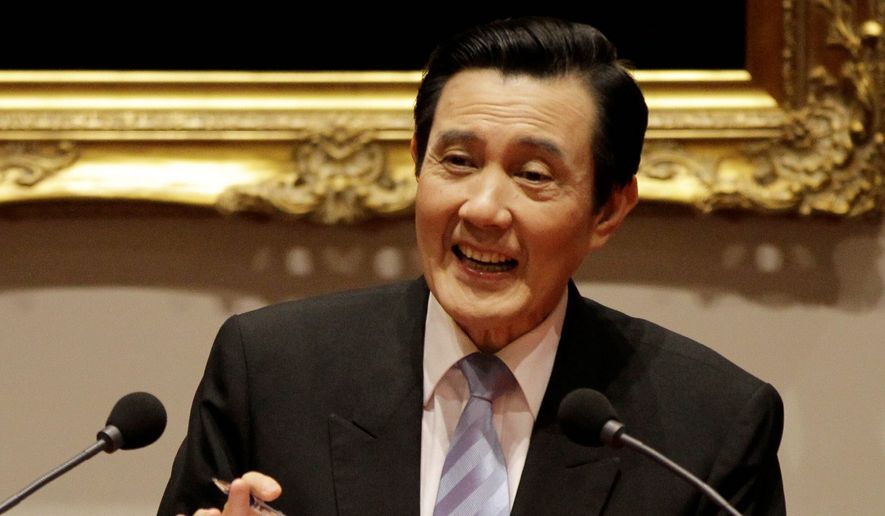Without the usual boisterous and contentious primary election, and without the traditional backroom wheeling and dealing among party elders and luminaries to decide their next presidential candidate, Taiwan’s ruling political party, the KMT, has moved with uncharacteristic alacrity to select a political lightweight to compete against opposition Democratic Progressive Party heavyweight candidate Tsai Ing-wen in next year’s election.
In fact, the nomination of Ms. Hung Hsiu-chu was passed unanimously by the Central Standing Committee of the KMT on Wednesday, and the local press immediately dubbed it “passage in one second.”
Yet Ms. Hung’s swift nomination is a sign of KMT weakness, not strength, because the party’s prospects of winning the election are so slim that no experienced and seasoned politician has been willing to run against the increasingly popular Ms. Tsai.
It was against this desperate backdrop that Ms. Hung, long considered a minor KMT functionary and something of a loose cannon, bolted from political obscurity and instantly became a superstar in Taiwan’s politics.
Ms. Hung is the deputy speaker of Taiwan’s Legislative Yuan, the equivalent of a parliament, and to many voters was an untested and unimportant KMT apparatchik until a few weeks ago, when she boldly announced her desire to take on Ms. Tsai in what is now shaping up as a two-woman race. As of a couple of weeks ago, Ms. Hung had close to half the party voters’ endorsement in some KMT bases, but she was virtually alone in the “default” candidate category.
Ms. Hung’s rapid rise is also related to her personality as a feisty, combative legislator. She claims that she is a “royal” member of the KMT, although there is no doubt that she is likely to mean a “loyal” adherence to the core values of the ruling party.
That’s where the problem starts for her candidacy, because the core KMT policies of late, especially the perceived cozy relationship with China, are precisely the reason the party has become gradually marginalized among increasingly sophisticated Taiwanese voters.
Many in Taiwan argue that her view on the ultimate election issue — political unification with Communist China — is far from the mainstream of Taiwanese voters. She once even rejected the incumbent KMT President Ma Ying-jeou’s unpopular insistence on the “1992 Consensus,” in which China and Taiwan purportedly agreed that there is only one China but that Beijing and Taipei will interpret separately what that “one China” is.
Ms. Hung has said she does not want the “separate expression” to be part of the elusive “1992 Consensus.” But she insists that there is one China, which, critics note, in all practical terms acknowledges that Taiwan is part of the “China” under the communist rule in its current form because any Taiwanese claim to control all of the mainland China has become politically, diplomatically and militarily impossible.
Many voters also worry about Ms. Hung’s explicit desire to sign a “peace agreement” with Beijing, without specifying any practical considerations of political legitimacy and reality.
Until Wednesday, Ms. Hung faced potential challenges from other KMT heavyweights who were still considering whether to join the race. Among them was her boss, Legislative Yuan President Wang Jin-ping, whose odds of winning, according to major opinion polls, would be higher than those of Ms Hung.
But the unanimous nomination of Ms. Hung by the KMT’s Central Standing Committee on Wednesday effectively shut out the possibility of new challengers among more high-profile party figures.
Even though the committee’s nomination still must be approved in the KMT’s plenary session, with no stronger and willing candidate in sight, Ms. Hung’s victory is all but certain.
• Miles Yu’s column appears Fridays. He can be reached at mmilesyu@gmail.com and @Yu_miles.
• Miles Yu can be reached at yu123@washingtontimes.com.




Please read our comment policy before commenting.